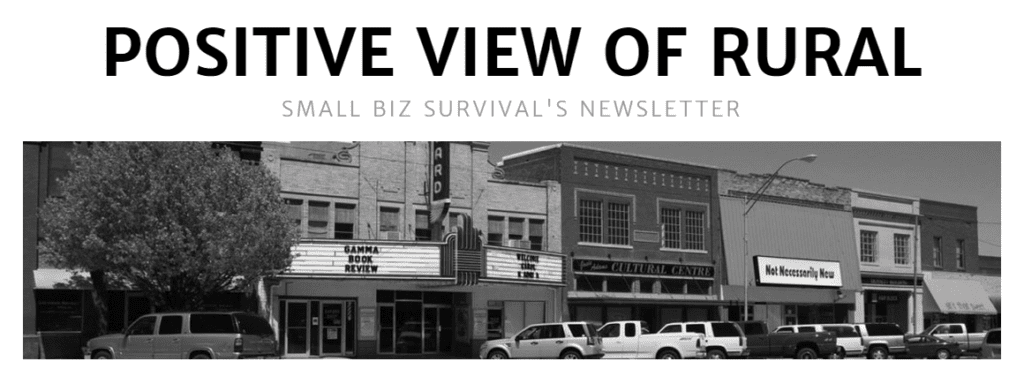You don’t trust the examples you hear. Here’s why.

Because you care about the future of your town, I’m sure you read and hear a lot of examples and stories. And despite being interested in what other towns can do, you’re skeptical. Rightly so. You know what your town and your people can do right now. But there’s a trick.
Those big stories and grand examples are end results. Their beginnings didn’t look anything like that.
Lots of the best things come from mistakes and things we didn’t mean to go the way they did.
Papa’s Pumpkin Patch, the huge agritourism draw that now fills 60 acres near Bismarck, North Dakota, with pumpkins and family play areas, draws hundreds and thousands of people, and is a family tradition year after year, actually started with a mistake followed by a failure. A friend asked a farmer to grow a truck-load of pumpkins to supply an event. The farmer misjudged and grew too many. So he called teachers to bring their students out and pick pumpkins. That was how it started. Not big and grand, just a favor to a friend and a failure. Then, he lost his market because the organizers moved the date of the event. The smart thing for the farmer to do would have been go back to his regular crops. But the teachers were calling to make sure there would be pumpkins again. So he planted pumpkins again. It grew and grew, just little steps each year. I asked him if, during those first years, he had any idea what it would become. Of course not, he said. So today, looking at 60 acres filled with happy kids and families, it’s easy to be skeptical when you hear the story. Unless you hear about the beginnings, as well.
But when we tell stories and give great examples, we’re usually just sharing the results like that. And I think that’s unnecessarily intimidating. That’s why I ask about beginnings and first steps and initial mistakes. We can all relate to those.
Very few successful rural businesses or local projects were started with the intent of scaling them up to a large size all at once. Maybe someday. But more likely it was baby steps, mistakes, failures and direction changes.
So when you hear a story of a big success, ask about the beginnings. Ask about the mistakes and wrong turns.
And look at your own projects a little more kindly in the beginning stages. Don’t expect to grow the world’s largest event the first year.
Honestly, you’re the only one who sees the grand vision of what it’s going to be. Everyone else sees the streets empty or life as usual. Sure a few people will make nasty comparisons to some grand large example in a bigger city or an event that has gone on for years and years. But almost everyone will compare your attempt to the nothing that happened yesterday. And by that measure, your first attempts are successes.
Keep shaping the future of your town,
Becky
PS – A new reader, Cathy, needs your help with a question. How can they get kids interested in programs at the library?
Ever divide your efforts to develop only entrepreneurial businesses versus ordinary small businesses? Glenn Muske reminds you that Communities Need All Types of Businesses
